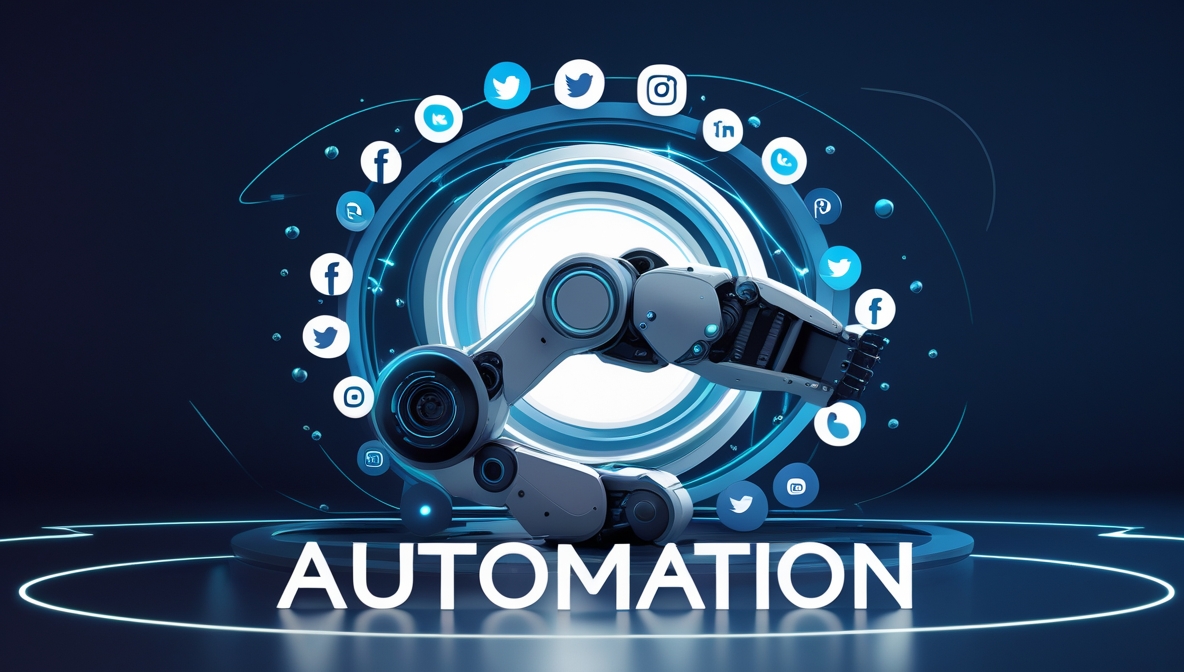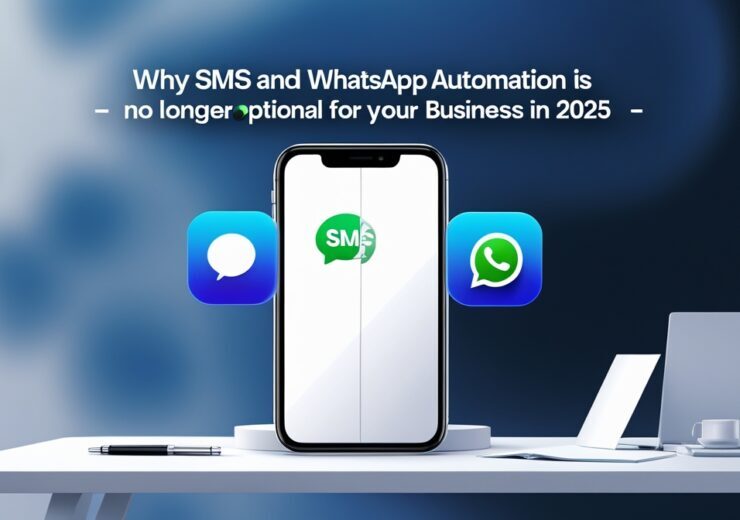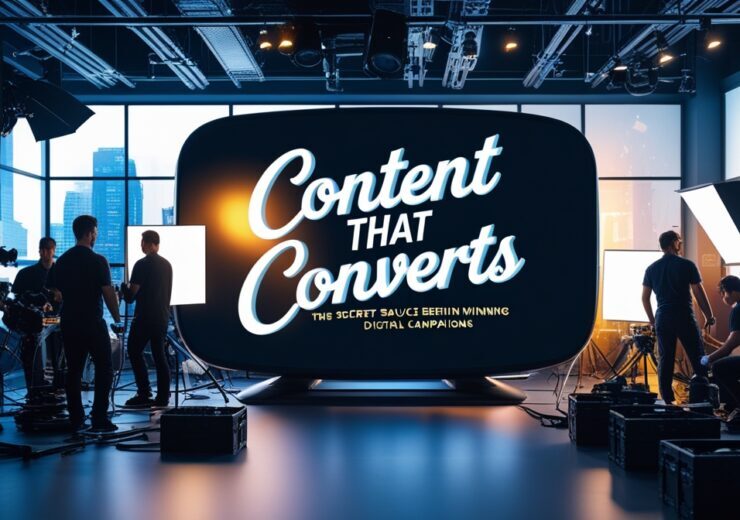Why Your Business Needs Marketing Automation Now More Than Ever

Introduction
In today’s hyper-competitive digital landscape, marketing automation has moved from being a luxury tool for tech-savvy companies to an absolute necessity for every business that wants to thrive. With customer journeys becoming more complex and personalized engagement being the standard, companies that fail to automate their marketing efforts risk falling behind.
But what exactly is marketing automation? Why has it become such a powerful tool in 2025? And how can businesses like yours harness it to drive growth, efficiency, and long-term customer relationships? Let’s explore.
What is Marketing Automation?
Marketing automation refers to the use of software platforms and technologies to automate repetitive marketing tasks, streamline workflows, and deliver personalized experiences across multiple channels. Think of it as your digital marketing assistant that never sleeps.
Typical features of marketing automation tools include:
- Email marketing automation
- SMS and WhatsApp automation
- Lead scoring and nurturing
- Customer segmentation
- Behavioral tracking and personalization
- Analytics and performance tracking
Popular platforms include HubSpot, ActiveCampaign, Mailchimp, Klaviyo, and many more, depending on the size and nature of your business.

Why Automation Matters More Than Ever in 2025
1. Increased Customer Expectations
Today’s customers demand instant responses, hyper-personalized experiences, and seamless communication across channels. With the rise of AI chatbots, voice assistants, and smart devices, customers are used to being served around the clock. Manual marketing can’t keep up. Automation bridges the gap by:
- Sending the right message to the right person at the right time
- Triggering responses based on behavior
- Creating a seamless omnichannel experience
2. Remote Work and Leaner Teams
Post-pandemic business models have permanently shifted towards hybrid or fully remote structures. With smaller, distributed teams, companies need systems that support marketing at scale without requiring constant human intervention. Marketing automation enables lean teams to:
- Manage larger customer databases
- Launch campaigns faster
- Reduce human error
- Focus on strategy and creativity instead of repetitive tasks
3. Data-Driven Decision Making
In 2025, marketing is no longer a guessing game. With access to more data than ever, businesses are expected to act quickly based on customer insights. Automation tools help businesses:
- Track user behavior in real-time
- Score leads based on engagement
- Optimize campaigns automatically
- Generate in-depth reports and ROI analysis
4. Cost Efficiency and ROI
Time is money, and in marketing, efficiency directly affects your bottom line. Businesses using marketing automation experience:
- Lower acquisition costs
- Higher conversion rates
- Better customer retention
A 2024 study by Statista revealed that businesses using marketing automation generated a 34% increase in revenue and saved 20% in marketing costs annually.
Use Cases for Marketing Automation
1. Lead Nurturing and Follow-Up
When a prospect signs up on your website, they should immediately enter a nurturing workflow. For example:
- Welcome email within seconds
- Educational content over the next few days
- Product demo or sales offer after key engagements
2. E-commerce Cart Abandonment
One of the biggest revenue leaks in e-commerce is cart abandonment. Automation helps recover lost sales by sending timely reminders, discount offers, or limited-time deals to encourage checkout.
3. SMS and WhatsApp Updates
Customers are more responsive on their phones than in their emails. Automating SMS and WhatsApp communication helps businesses:
- Confirm orders
- Send delivery updates
- Notify of sales or new arrivals
- Collect feedback quickly
4. Behavioral Targeting
Track what users do on your website and trigger personalized messages based on their behavior. For instance:
- Visited a pricing page but didn’t convert? Send a case study.
- Read a blog post about a specific service? Offer a free consultation.
Getting Started: A Simple Automation Strategy
If you’re new to marketing automation, don’t get overwhelmed. Start with these foundational steps:
Step 1: Define Your Goals
What do you want automation to achieve?
- More leads?
- Better engagement?
- Increased conversions?
Step 2: Choose the Right Tool
Select a platform that suits your business size, needs, and budget. Some tools specialize in e-commerce (like Klaviyo), while others are best for service businesses (like HubSpot or ActiveCampaign).
Step 3: Map the Customer Journey
Understand the path your customer takes from first touch to conversion. Identify points where automation can:
- Improve response time
- Educate the prospect
- Prompt action
Step 4: Build Basic Workflows
Examples include:
- Welcome email series
- Birthday or anniversary messages
- Abandoned cart reminders
- Re-engagement campaigns for inactive users
Step 5: Test and Optimize
Monitor performance. A/B test subject lines, offers, timing, and formats. Automation is not a ‘set-it-and-forget-it’ system. The best results come from consistent improvement.
Common Myths About Marketing Automation
“It’s Too Expensive”
There are tools available for every budget. Free tiers and small-business plans offer powerful features without breaking the bank.
“It’s Only for Big Companies”
Startups and SMEs benefit just as much—if not more. Automation allows small teams to compete with larger brands on efficiency and customer experience.
“It Replaces Human Touch”
Automation actually enhances the human touch by freeing up marketers to focus on strategy, creativity, and building relationships.
The Future of Marketing Automation
Looking ahead, marketing automation will continue to evolve with AI, machine learning, and voice tech playing larger roles. Predictive analytics will allow businesses to anticipate customer needs and automate responses in even more personalized ways.
Imagine:
- AI writing your email content based on user preferences
- Chatbots qualifying leads before your team speaks to them
- Voice assistants executing entire campaigns via voice commands
This future is closer than you think.
Final Thoughts
Marketing automation isn’t just a trend—it’s a vital component of any modern digital strategy. It empowers businesses to work smarter, serve customers better, and grow faster.
If your business hasn’t embraced marketing automation yet, now is the time. With the tools and knowledge available in 2025, there are no more excuses.
At Cart Digital Agency, we specialize in setting up, managing, and optimizing marketing automation systems tailored to your business goals. From strategy to execution, we help you unlock the full potential of automation.
Ready to automate your marketing and scale your business? Contact Cart Digital Agency today.




